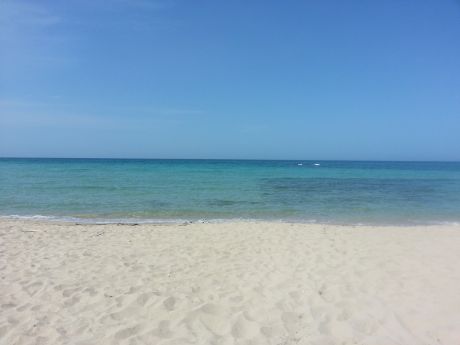Forgiveness
Discomfort or Regret?
What swimming in cold water can teach us about life
Posted December 7, 2014

To swim or to regret?
This summer, I got to do some consulting in Brindisi, Italy - a city that's working on being even more surprising and delightful. As though that weren't amazing enough, I also got to sneak in two days of vacation!
On one of these days I visited the translucent, postcard-esque Adriatic Sea at a nature reserve called Torre Guaceto. The sky was a sheet of gray, the white sand chilly between my toes. It wasn't ideal swimming weather.
And so, a philosophical question emerged: Suffer the frigid water? Or leave Italy with a dry bathing suit and a tinge of regret?
I approached the sea.
Wet, squishy sand. Cold but bearable.
Then came the water, sharp and sudden, even as I watched it glide up the shore.
The philosophical question pressed harder: discomfort or regret?
As it often does, my mind started flipping through my mental database of fitting psychological research, and I thought of a study by Thomas Gilovich and Victoria Husted Medvec at Cornell University. Gilovich and Medvec asked participants to rate what they regretted more in the past week: action or inaction (i.e., swimming in cold water or not swimming in said water). 53% said they regretted their actions. (Maybe I shouldn't dive in?) But here’s the twist: When the researches asked participants to look back on their lives as a whole, only 16% held onto regrets of action. 84% regretted the things they did not do. Time lets us forgive ourselves for our mistakes. But it does not forgive us for the opportunities we missed.
So? What will it be?
I let out a battle cry (or maybe a squeal), and charged into the sea. What happened next is what always happens next - whether the discomfort we face is physical or emotional. The water was cold. And then it wasn't so cold. And then it was wonderful. I left Italy with sand in my hair and no regrets in my heart.
How is it that every time we face a new body of water or a new uncomfortable situation, we forget what we already figured out before? Get in, and it gets better. Then it gets really, really good. Maybe we just need to dive in more often.
What metaphorical sea are you avoiding? What would it take for you to leave the shore?


